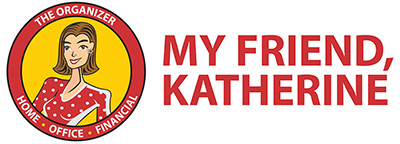*My mother-in-law and my husband
Source: Kathleen Michon
DMM programs can be valuable for senior Americans who:
- cannot keep track of bills and financial documents
- often forget to pay bills
- cannot write checks because of arthritis or other health problems
- have trouble getting to the bank
- can no longer manage money or finances, or
- are susceptible to financial scams.
There are many upsides to helping an older person handle their finances.
Help Maintain Independence
Studies show that DMM services can help seniors remain in their homes longer and avoid costly nursing home care. DMMs ensure that bills get paid on time, checks are deposited, and taxes get paid. This helps avoid eviction, foreclosure, utility shutoffs, and other debt trouble.
Relieve Burden on Caregivers
In most cases, when elders need help managing money, adult children or relatives step in. Yet often adult children live far away or have busy lives that make daily, hands-on money management difficult or impossible. DMMs provide adult caregivers relief from some or all daily money management tasks. Ideally, the elder’s children or relatives should oversee the DMM’s performance.
Protect Against Scams
According to the National Center on Elder Abuse, DMMs can play a role in protecting the elderly from financial abuse or scams. DMMs can review bank and credit card statements, looking for signs of abuse or fraud — such as large, unexplained withdrawals of money, checks written to charities or other groups in unreasonably large amounts, or any other suspicious activity.
Daily money management programs can help seniors handle finances. Daily money management (DMM) programs provide personal financial assistance to older Americans who can no longer handle certain aspects of money management. Whether an older person needs comprehensive help or just a monthly reminder to pay bills, these programs can mean the difference between living independently and residing in a nursing home. DMMs also offer relief to family members who are providing care to their older parents or relatives.
It is important to know what DMMs cannot do. They are not financial or legal professionals, so they cannot act in an advisory capacity or prepare tax returns. But a good DMM can provide referrals to professionals like accountants, investment advisors, and lawyers.
The best way to start your search is through referrals.
- Family and friends. Often, the best way to get referrals is from trusted family members and friends who have had a good experience with a particular DMM program.
- Industry professionals like accountants, investment advisors, lawyers, counselors.
- American Association of Daily Money Managers (AADMM). This organization provides referrals to DMMs in your area, although it doesn’t vouch for the competence of these organizations. The AADMM also has a new DMM certification program. To get certified, DMMs must perform 1,500 hours of DMM services and pass a written test. (For more information, visit the AADMM’s website at www.aadmm.com.)
- Local elder assistance agencies. Nonprofit and government agencies that assist elders may be able to provide referrals to reputable DMM programs. To find elder assistance agencies in your area, contact your local Area Agency on Aging (AAA). (You can find your local AAA by visiting the federal government’s Eldercare Locator at www.eldercare.gov.)
Once you have obtained several solid referrals for DMM programs, interview them all. Ask lots of questions about the services they provide, fees, training and supervision of managers, and insurance coverage. (For a list of questions to ask any DMM program, visit the AADMM’s website at www.aadmm.com and click “Questions to Ask.”)
Check for Insurance Coverage and Bonds
Find out what type of insurance coverage the program has and whether it is bonded. (Being bonded means that a bonding company has secured money that is available to you if you file a claim against the DMM.) This will give you an idea of what kind of protection you have if something goes wrong.
Get References
Ask for several references from each DMM program that you are considering. Contact the references and ask lots of questions.
Precautions When Using a DMM
Your vigilance should not end once you’ve screened and selected a DMM program. Avoid problems and identify fraud early on by doing the following:
- Limit funds in checking accounts. If the DMM will be paying bills for your older relative, give the manager access to one checking account only, and then limit the funds in the account. That way, if the DMM empties the account, your loved one won’t lose their entire nest egg.
- Have your elder relative sign all checks. Some eldercare experts advise that DMMs prepare checks for their elder clients, but that the client sign all checks, if physically possible.
- Give banks the heads up. Ask your elder relative’s bank to keep an eye out for forgeries.
- Review statements. A trusted adult should get copies of all bank statements and financial records and periodically review them. If the DMM will not provide you with full access to financial records, then terminate services and find another DMM.
For help managing the care of your older relative, you may find it helpful to consult the following Nolo resources: Long-Term Care by Joseph L. Matthews (Nolo), and Social Security, Medicare, and Government Pensions, by Joseph L. Matthews and Dorothy Matthews Berman (Nolo).

Stay In Touch